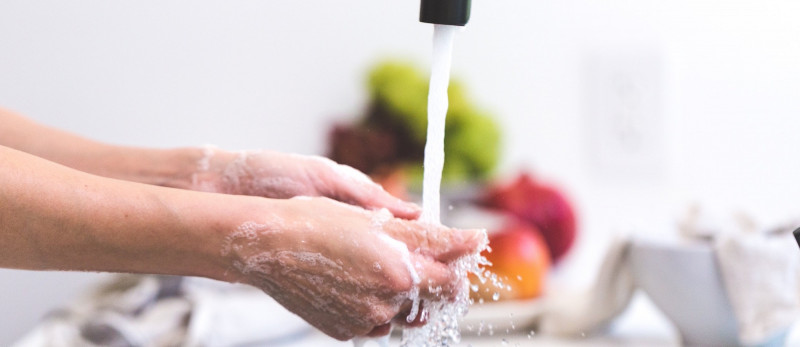Covid-19 Updates

We are available during the MCO, CMCO, RMCO
So do send us your orders and we shall deliver to your doorstep
Microbiologist and virologist PD Dr. Dr. v. Rheinbaben explains how the risk of infection can be minimized, especially in crafts.
The corona crisis presents craft businesses in many industries with unprecedented challenges. Uncertainties as well as concerns about health, employment, work and liquidity and the question of suitable preventive measures occupy users and business owners. Wiha asked the experts for you and provides answers and recommendations for action for users and businesses in the trade.
Microbiologist and virologist PD Dr. Dr. v. Rheinbaben explains the essential facts about Covid19 and explains how the risk of infection can be minimized by following simple, general and special protective measures for the trades.
Corona virus epidemic - how do I behave now as a craftsman?
From Dr. Dr. F. v. Rheinbaben
For more detailed information, please click on the points below.
»What specifically can I do as a craftsman in everyday work to protect myself, my colleagues and my customers?
As a craftsman you are on the move. In order to be able to pursue his work, the presence on the construction site, at the next deployment, assembly or work location is essential. Contact with other people can hardly be ruled out. Electricians, for example, have to carry out the electrical installation on the construction site or electrically connect a machine on site during service calls. You are rarely there all alone. A similar risk minimization as it takes place in other professions (e.g. through home office) is not possible. However, even under these conditions, the risks are extremely low, provided you avoid direct contact with infected colleagues, employees, other people on site or the customer himself and take the following recommendations for action into account.
Recommended action to minimize the risk of infection with the corona virus for yourself and others :
- Take care of your hand hygiene. If possible, wash your hands regularly with soap and water for about half a minute to a minute. If hand sanitizer is available, use it. Thorough hand hygiene is essential between different locations, e.g. when a service is required or between two different customers.
- Reduce personal contacts within the company as much as possible. For example, organize the departure of your service or construction site vehicles in the morning with different destinations offset by a few minutes.
- Keep tool boxes closed and if possible only use your own tools and if possible do not lend them to your colleagues, for example.
- Keep your distance from the customer (e.g. during a service call) or from colleagues from other trades (e.g. on the construction site). Avoid shaking hands when greeting and touch as few surfaces as possible that are regularly touched / used by others.
- If possible, take your lunch separately and at different times, for example avoid having lunch together in the break room or in the vehicle.
- By cleaning your tool after a job on the construction site or a service call, you avoid possible spread and the risk of becoming infected later.
Due to its nature, it is recommended that your Wiha tools be cleaned with soap and water as follows:
- Dip the cloth in water with soap or dishwashing detergent, wash well
- Wring out cloth
- Clean Wiha tools with a damp (soapy water / washing-up liquid) cloth
- Dry the tool
- Then wash the cloth well again; (hand) detergents can also be used for this
- Change cleaning cloth, drying cloth and cleaning solution regularly
»What is the new Corona Virus and how dangerous is it?
Corona viruses belong to the group of enveloped viruses. They usually cause mild respiratory and intestinal infections in humans. The newly emerged strain SARS-Related Coronavirus 2, 2019nCoV makes an exception in this respect in that it can lead to a life-threatening respiratory infection. This is known as Covid19 and its level of danger is roughly equivalent to the classic flu caused by the influenza A virus. Both diseases are particularly problematic for risk groups, especially for people with chronic underlying diseases and for the elderly.
The number of cases of Covid19 patients suggest a death rate of around 0.3% for Germany. However, since this rate is only calculated on the basis of the significantly to seriously ill and, according to estimates by experts, more than 90% of those infected do not become ill at all or only very slightly, the death rate of the total population is considerably lower (as of early April 2020).
However, the analysis of the deaths to date identifies some risk groups that should definitely avoid infection. These are mainly:
- Elderly to very old people, preferably in the age group of 80 years and older seniors,
- People with a long-term, chronic underlying disease,
- People with a predisposition to lung diseases or with damage from previous lung and respiratory diseases,
- People who are temporarily or permanently under immunosuppression,
- People whose immune system is weakened, for example as a result of a recent serious illness, serious injury, accident victim, recently operated patient or comparable person.
Even if a critical course of Covid 19 disease outside of the risk groups cannot be safely ruled out for anyone, healthy adults and children are hardly at risk. Both groups can usually expect a mild to silent course of the disease.
»What general protection recommendations are there?
As with all respiratory diseases, infection of large parts of the population is difficult to prevent. The measures currently being implemented are therefore intended to prevent the risk groups from becoming infected and to delay an overly rapid infection of the general population so as not to overload the capacities of the hospitals.
Avoiding contact : Corona viruses in the respiratory tract are preferably transmitted through direct contacts (hand-to-hand contact) or indirect contacts (through contact surfaces such as handles, switches, handrails, doorknobs, etc.), depending on the situation. These viruses often cause a rhinitis-like clinical picture. The main symptoms are then less coughing and sneezing than the "running" of the nose. Contamination of the hands with pathogen-containing nasal secretions and respiratory secretions is practically unavoidable. Thus, restricting body contact, avoiding touching surfaces and keeping a distance are probably the most effective measures for avoiding infection.
Disinfection : As an enveloped virus, the new pathogen is no more resistant to disinfectants and disinfection processes than any other enveloped virus. On the contrary: In addition to all common disinfectants, the corona virus is also highly sensitive to all types of fat solvents. Soaps, dishwashing detergents, detergents and processes are therefore rated as highly effective.
Hand Sanitiser: Any professional alcohol-based hand sanitizer is highly effective when used correctly. You only need to ensure that your hands are completely wetted. The effect of these preparations is usually given within 30 seconds. The agents should be applied to dry, unpolluted hands and rubbed in carefully. It is unnecessary to wash your hands before disinfecting them unless they are dirty.
However, hand disinfectants are currently difficult to obtain and should therefore be reserved for the medical sector wherever possible, where they serve other important purposes than pure corona virus prophylaxis. Since the pathogen is highly sensitive to soaps, it is sufficient to wash your hands carefully with soap and water or a syndet in private or at work (outside of the medical field). To do this, the hands must first be pre-moistened, then the agent should be rubbed onto the hands for at least 30 seconds to a minute. Only then should you rinse and dry them thoroughly.
Mouthguard:A simple face mask, such as that worn by surgeons during an operation, is only of limited use. Its main purpose is to protect patients from germs from the surgeon's airways during an operation. Anyone who wears such protection in public will hardly be able to protect themselves effectively if someone really coughs them up. Effective protection is only given if so-called FFP masks are worn. These are close to the face and breathing is made possible via a valve and filter part. Since the transmission of respiratory diseases, especially Covid19 in the public sector, preferably takes place via contact infections, the protective effect of the masks currently worn there, often even self-sewn, is presumably overestimated.
Protective gloves: It is not necessary to generally wear protective gloves in public, provided that the recommended measures for hand hygiene are observed.
PD Dr. rer. nat. Dr. med. habil. Friedrich von Rheinbaben studied microbiology and virology at the University of Bonn and Gießen and completed his habilitation at the University of Witten-Herdecke in the subjects of microbiology, virology and hygiene. As the author and co-author of numerous specialist and textbooks as well as articles in the fields of hygiene and infection prevention, PD Dr. Dr. v. Rheinbaben, in addition to his teaching assignments for the University of Witten / Herdecke (Germany) and the University of Krems (Austria), industrial companies in questions of technical and industrial hygiene

